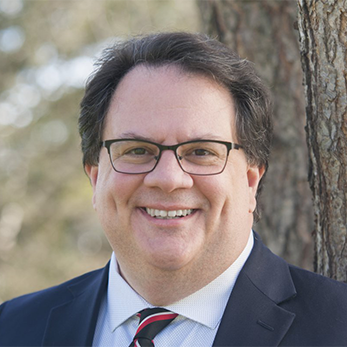Q&A With Anthony Jones, Chair of the Resumption of Loan Repayment Task Force
By Maria Carrasco, NASFAA Staff Reporter
With the Resumption of Loan Repayment Task Force coming to an end next month, chair Anthony Jones spoke with NASFAA about the task force’s work over the past few months. 
The purpose of the Resumption of Loan Repayment Task Force is to give thought to what schools and financial aid administrators should be thinking about in preparation for borrowers transitioning back into repayment on federal student loans.
Many borrowers haven’t been required to make payments for more than two years, with a growing cohort entering the repayment period during the pause meaning they have never had to make a loan payment before. That means institutions will need to find effective ways of communicating with those borrowers to help prepare them for the repayment pause to end.
The task force will create a report that has a toolkit for schools to prepare borrowers for the resumption of payments, and include suggestions and best practices for helping students transition successfully into repayment.
Anthony is currently the executive director of financial aid and scholarships at the University of Utah. Beyond being chair of this task force, he is also a member of NASFAA’s Policy Rapid Response Network Task Force. He has worked in the financial aid profession since 1991, including at institutions in Tennessee, Georgia, and North Carolina.
Read on to find out more about Anthony’s mission for the Resumption of Loan Repayment Task Force.
TN: What is the issue this task force is trying to address?
AJ: The unique repayment pause that we've experienced due to COVID-19 for federal student loans will be coming to an end. The task force is really looking at what do schools need to know or consider in order to be prepared for that resumption, in order to help borrowers prepare and navigate the process. There may be students who, with the resumption of repayment, will have changes on their eligibility that schools need to consider with the companion of the Fresh Start initiative that provides remedies for those who are in default to regain eligibility. Schools are going to have to adjust their communications and possibly their counseling.
There's just layers that schools operationally need to be aware of. How might the accountability measures be affected with the cohort default rates? What do schools need to be aware of related to the pause’s effect on the cohort default rates and being prepared for those types of aspects? Communications, accountability, and operations are three of the key issues, but the other aspect would be, what partnerships can schools engage in to help ensure a smooth transition back into repayment for borrowers?
TN: What are you hoping the Resumption of Loan Repayment task force accomplishes?
AJ: To help borrowers be aware of the resumption, to be prepared, and to be able to make the best decisions. There are multiple options for repayment plans, and so ensuring students are aware of the options, the advantages of each, which ones may best fit their circumstances, and especially to be aware if they have challenges. I think that making schools have the best information at their disposal to help facilitate information.
TN: President Biden recently announced the extension of the pause on student loan repayment and interest accrual. How has that impacted the task force?
AJ: Certainly extending it means it may be a little less rushed to get out information, and that gives us a little more planning time and preparation to ensure we've got an appropriate toolkit for schools to use. We remain on track to issue a report, so that's not deterred. It's just anything related to the immediacy of when that repayment begins has been extended. I think the bottom line on that one, is the fact that repayment will resume and so we will continue to think of how to best position schools to assist borrowers and themselves.
TN: Are there other challenges the task force has faced since starting?
AJ: I think the companion of the loan forgiveness certainly would affect the amount a student has to repay, so that's a consideration. With the loan forgiveness plan being challenged in the courts, as well as other loan forgiveness options such as the Public Service Loan Forgiveness (PSLF) and changes, certainly can affect your repayment amounts. So there's a lot of intervening factors to consider. The challenge that the task force has accepted is how to arm individuals with information, given the variety of circumstances that are at play, and distill it in such a way that is consumable.
TN: Why did you decide to serve on this task force?
AJ: When 2022-23 National Chair Brad Barnett, FAAC®, tasked me to chair the task force, certainly I was happy to do it. The reason why I was eager to serve and lead the task force is that the repayment pause is unique. This has never happened before. Certainly not at this scale and much less this length of time. In reaction to the pandemic, we've been through a lot of unique circumstances, but this is one that I think has been unique for the financial aid community. To be able to pull together and work with a team to identify ways that the community can react and be of support to borrowers and other institutions was exciting.
Publication Date: 1/4/2023





You must be logged in to comment on this page.